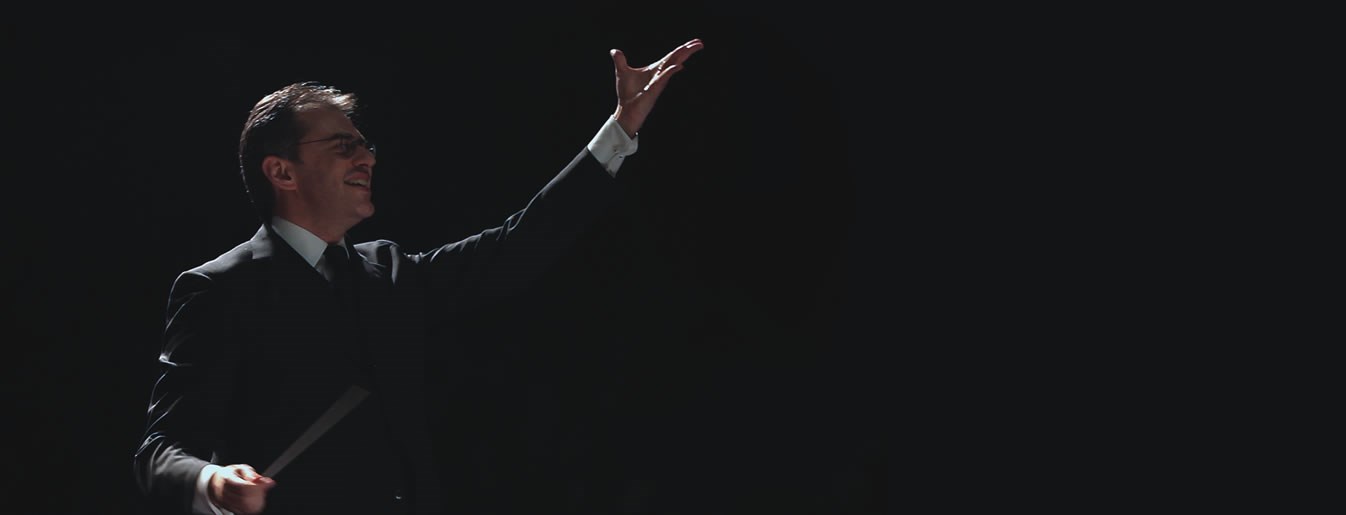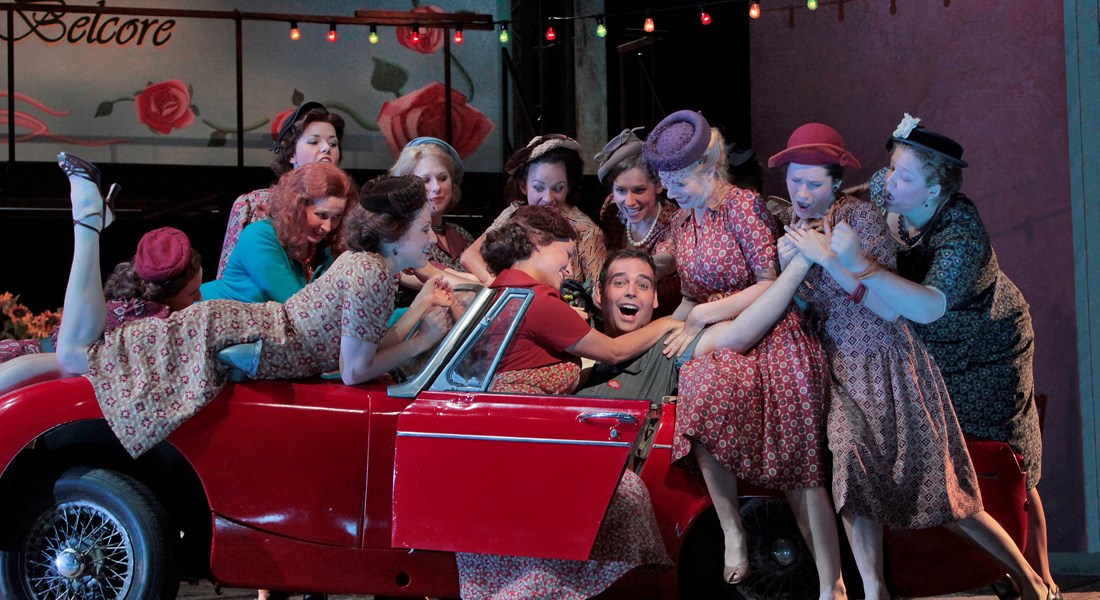Posted15 Apr 2016
- In
Q&A with Music Director Corrado Rovaris
Corrado Rovaris, the Jack Mulroney Music Director at Opera Philadelphia, first conducted this production of The Elixir of Love in 2009 with The Santa Fe Opera. Corrado recently sat down with music writer Diana Burgwyn to discuss how he’ll be serving this Elixir to Philadelphia audiences.
Q: The Elixir of Love is often considered a comic opera. Is that how you see it?
No. In Donizetti operas we often find that, along with the delightful humor, there is a touch of melancholy. That is the case with Elixir, which is identified in the score as a melodramma giocoso, meaning a playful or light work of an emotional, sentimental nature. It is not easy to determine the right emotional balance, but achieving it is vital to the effectiveness of the opera.
Consider the touching aria “Una furtiva lagrima” sung by Nemorino, in which he rhapsodizes over the tear he saw in Adina’s eye, convincing him that she loves him. Nemorino, far from the silly country bumpkin he is often portrayed as, has an innate wisdom and an instinctively good heart that enable him to win over the more cultivated, sophisticated Adina.
For true comic operas, known as opera buffa, one naturally thinks of Rossini, who composed such frothy masterpieces as The Barber of Seville, La cenerentola, and The Italian Girl in Algiers. Only once did he venture into melodramma giacoso, and that was with Il turco in Italia.

Q: Is the peasant life depicted in Elixir realistic?
It is. I am often reminded of a prize-winning 1978 movie by the Italian film writer and director Ernanno Olmi about peasant life in Lombardy during the late 19th century. The movie, L’albero degli zoccoli (The Tree of Wooden Clogs), like the Donizetti opera, is about everyday peasant life, and Olmi employed real farmers and locals for all the roles, rather than professional actors. The similarity between the characters, the setting, and the time frame of that movie and the Donizetti opera is striking. There is limited availability for the film on DVD.
Of course our director, Stephen Lawless has updated the time of the opera so that our production takes place in the 1940s, after the end of World War II. Nemorino is now an auto mechanic, Belcore a U.S. Army officer, and Adina a glamour girl in shades. But this concept is fully respectful of the libretto and it is one of the most beautiful productions I have seen. In fact, I think it is more Italian than many Italian productions!
Q: Who had the biggest influence on you as a conductor of this opera?
As chorus master at La Scala in Milan, I had the good fortune to meet Gianandrea Gavazzeni, who had been principal conductor there and was considered the god of Donizetti operas. He was Bergamo-born, as was Donizetti, and was intimately involved in the Donizetti Festival in that city. At the time all my conducting experience had been seated at the harpsichord with no baton, so I had much to learn before conducting Elixir standing in front of the orchestra. Gavazzeni also taught me that when you study opera chronologically from the earliest to the present day (rather than beginning with contemporary composers, as I had done, then moving backwards in history), you have a much clearer sense of whether a given composer was a true innovator. Seen in that light, Donizetti had shown great originality, especially in his use of strings and woodwinds.
In Elixir, Donizetti also made use of three trombones, which added a rustic flavor that perfectly depicts the peasant world. However, it is not always easy to find the trombones that were used then, because they are smaller in size and their sound is lighter and less thick. Another difficulty in conducting this and other bel canto operas is that often there are not many notations in the score (indicating dynamics, expression, etc.) so you have know the style intimately in order to convey the right meaning. In a way, it has to be in your blood.

Q: How did you go about choosing the cast for this production?
An important part of our philosophy at Opera Philadelphia is to provide gifted young singers with the opportunity to gain professional experience on our stage and to maintain a relationship with us. We first cast them in small roles, then larger ones as they grow in ability and confidence. The Elixir of Love is an ideal opera for young voices, because three of the major characters are of a similar age.
Adina, the leading soprano role, is taken by Sarah Shafer, a Curtis Institute graduate who previously sang with our company in The Magic Flute and Ainadamar. Tenor Dimitri Pittas performed Nemorino in this production in 2009 in Santa Fe and sang the title role of Don Carlo with Opera Philadelphia in 2015. As Belcore, baritone Craig Verm is remembered for his performance here in La bohème. It is typical for opera companies to cast a more experienced singer in the bass role of Dr. Dulcamara, and we have bass Kevin Burdette, well-known to our audiences from his roles in The Barber of Seville and Cold Mountain, to take on that great comic role.
Each of these singers is now performing leading roles at major opera houses in the U.S. and abroad.
The Elixir of Love runs from April 29 to May 8 at the Academy of Music in Philadelphia.
Diana Burgwyn is a freelance writer based in Philadelphia
Leave your comment below.

 Facebook
Facebook Twitter
Twitter More
More